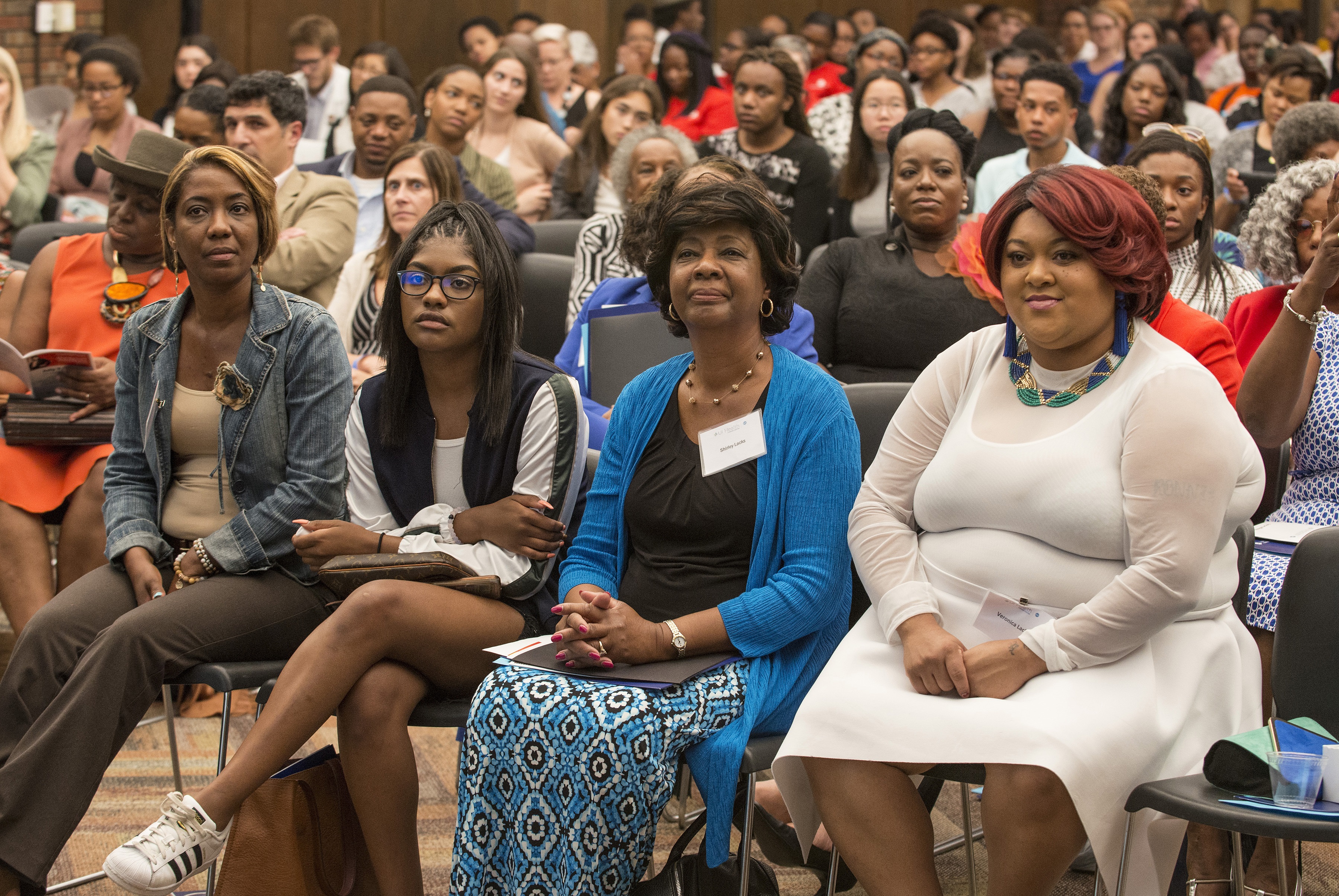More than 600 people packed a student center at the University of Illinois at Chicago Friday afternoon to see three generations of Henrietta Lacks's family tell her story together for the first time.
Lacks, who has been called "the most important woman in medical history," had cancer cells removed from her body without her consent in 1951. Those extraordinary cells paved the way for medical advances such as the polio vaccine and cancer research, though Lacks herself died soon after without any compensation, and it took decades for her family to learn of her contribution or get any recognition for it.
“This is our way of taking back our story, our oral history and sharing with the world what it means to us,” explained Veronica Robinson, Lacks’s great granddaughter, before the event.
Lacks's story was popularized by the 2010 publication of The Immortal Life of Henrietta Lacks, a book by Rebecca Skloot, which was made into a film this year starring Oprah Winfrey. Her family members, along with UIC researchers, spoke Friday about Lacks's legacy, the history of racism in scientific research, and the importance of rebuilding trust between doctors and patients.
Here are some key points from the event.
On the pain and pride of learning their family member’s story
“Our family had to [dig up old memories] just so the world would know her story. A lot of people say, are you guys bitter or hurt about it?" said Robinson. "It hurt, but we learned that sometimes, bad things happen to great people so that great things can happen for people in the world. And we’re honored to know that she’s responsible for the polio vaccine, in vitro fertilization, gene mapping, cloning.”
On the history of exploiting minority groups for medical research
“There’s no better example of this than what we now call the Tuskegee experiment, but which we know was called the United States Public Health syphilis experiment of 1932," said Robert A. Winn, director of the UI Health Cancer Center, which cohosted the event. "This is an example of folks wanting to do right but not actually seeing clearly, and the people who were being experimented on not being seen as human beings…. When we look at the life of Henrietta Lacks, she was not visible, until she had her family here who said we’re going to make this story visible…. We need to look back so we can move forward.”
On raising awareness about consent in medicine
“We will continue speaking around the world to tell people [Henrietta’s] story and how her story relates to your family—because my great-grandmother could have been your grandmother, your aunt," Robinson said. "It’s a story that frequently happens to people but isn’t being told. We’re here to inform and inspire people in the community so that we can move science, research and medicine forward, and to bridge that gap of mistrust between science/medicine and the community.”
On balancing science and social justice
“If loving science is wrong, then I don’t want to be right. But in that science there is a framework of social justice. Science devoid of social justice may even be considered bad science,” Winn said.




